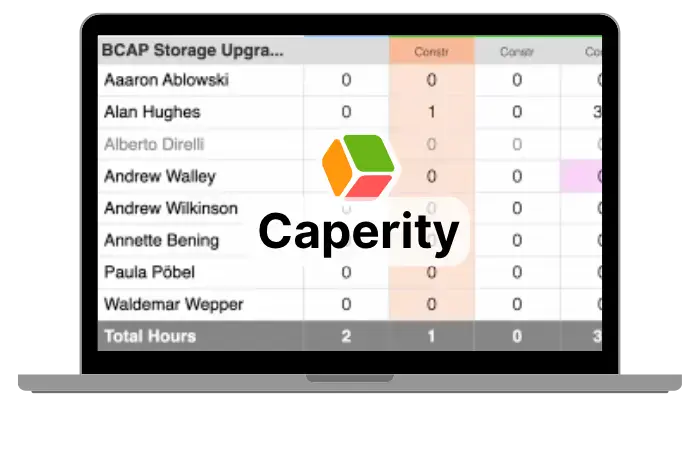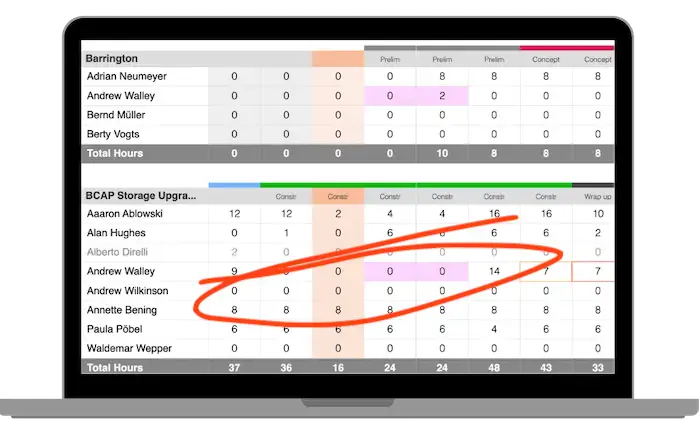Project Manager is one of the most challenging roles.
It’s confrontational by nature, the pressure is high, and like any leadership role – it’s a lonely game.
So, it’s no surprise that project managers sometimes hit a wall. Maybe they’ve run out of ideas to solve a particular issue. Or they are simply overwhelmed by the workload, struggling to operate at the level they expect of themselves.
The key is to spot when a PM is reaching their limit early on. It’s not just about the project being at risk—stress can take a toll on their health too, and that’s something we want to avoid.
In this article, I’ll share some specific signs that can show when a project manager might need help — whether that’s you or someone on your team.
Let’s take a look at these signs.
1. Everything they do is reactive
Project Managers must live in two worlds.
The now and the future.
In the now, they steer ongoing work, but they also must be constantly looking ahead, seeing what’s coming up next and preparing accordingly, sometimes making adjustments to avoid bottlenecks.
Many PMs get so much drawn into the day-to-day work that they have no more time to look ahead. They are drowning in the sea of details: Responding to email, keeping documentation up to date, managing user access etc.
This can be a temporary state, but cannot be, because it makes us reactive and we fail to see upcoming problems.
When we become purely reactive, this happens:
- Upcoming activities cannot be kicked off as planned because some parameter has changed or some needed resource is not available.
- Issues start so stack up that were not addressed quickly enough, making it hard to understand what’s most urgent.
- Team members and clients are not aware of the project status. They don’t know what’s expected from them, leaving everyone confused and upset because they lack the clarity they need.
2. They avoid work that’s uncomfortable to them
I once worked with a client PM in an ERP implementation. They were supposed to coordinate the client-side activities. Their duties involved coordinating decisions around processes and responsibilities as well as prioritizing requirements.
No easy tasks, for sure. But we needed these things to get sorted out.
Weeks passed, and we didn’t make any progress on the client side. I kept digging, guiding, pushing, and the client PM kept reassuring me that, tomorrow, surely, he’d tackle all those tough nuts. Don’t worry Mr Neumeyer.
Well – nothing happened.
Only after escalating the situation to the client leadership were we able to close our tasks.
Later, I realized that the PM was simply avoiding tasks that were difficult or uncomfortable to them.
I wish they’d been open about it, because we had a good relationship.
3. Their plans for tackling issues are vague
Good project management is about tackling issues quickly and coming up with a well thought-out action plan.
The plan may not be perfect, and we may need to change our strategy.
That’s okay!
At least we are working on the problem and we got all eyes focused on it.
The hard part is to come up with a plan. It requires knowledge, coordinated involvement of subject matter experts and the ability to cut through the complexity.
If a project manager struggles with any of these, they’ll have a hard time coming up with a clear action plan. They may be overwhelmed by the amount of complexity, and lack the necessary skills to keep their project on track.
4. They become unresponsive
Project Managers juggle a ton of work, so they can’t always respond promptly.
But if they are unresponsive for days, and important, project-related communication is not being dealt with, something’s cooking.
Also seeing other signs, the project manager may be overwhelmed by the workload.
Or they may be wrestling so hard with a problem that they forgot there’s actually a world around them.
Hopefully not, but it could be a sign that the person has already given up and is close to burnout.

5. They celebrate small wins and avoid updates on critical work
The reason I can write about these struggles well?
I was once a struggling, inexperienced project manager too.
And this point, over-emphasizing small wins to hide progress on critical tasks, has been one of my coping strategies back in the days – yes, I admit it.
You talk about the user accounts you got set up.
That you talked to 3 vendors.
That you got another meeting coming up
Where you “hope” to get clarity on the customer’s requirements soon.
What you don’t share:
That you have no clue what people to involve.
That you’re struggling coming up with a good concept.
That you …. need help!
Project Managers who are in control know what’s critical and will report openly on progress, pointing at knowledge gaps or concerns they may have.
Project Managers who are overwhelmed will push past achievements and avoid looking at the critical aspects of their project.
6. They seem exhausted and disengaged
Sometimes, everything seems to be going well:
The Project Manager is clearly stepping up to the challenge.
They are driving tasks with determination.
They are holding people accountable.
They are able to anticipate issues ahead and take smart actions to bypass or manage potential roadblocks – all while holding clear communication with the team and client.
Everyone speaks highly of the PM, and everyone highlights their level of responsibility – so why should we worry?
The Project Manager may be slowly dripping into burnout.
The tells?
They appear exhausted, frustrated and become disengaged.
Project Managers with a very high sense of responsibility are more prone to burnout. They feel like they are responsible for everything, and don’t want to disappoint.
Therefore they put in incredible energy, sometimes managing things on a micro level. When are they falling into burnout?
It’s when others don’t show the same level of commitment, or if certain parties with a high stake in the project (think of the customer) don’t own up to their duties. Milestones aren’t met, quality suffers and the whole project seems at risk. This is an unbearable situation for many project managers – seeing their project approaching the wall while not being able to do anything about it.

7. The team is unclear about the project status
“I don’t know what I have to do next”
“Am I still needed next week or can I go visit my parents?”
“What’s the status of these issues? Who’s taking care of them?”
When questions like these start flying around, it’s a reason to worry. The team or the customer don’t know how to go forward, and therefore, may reallocate their efforts to non-project work and leave aside their project tasks, resulting in delays and resource bottlenecks.
This situation can arise when the project manager struggles with the sheer volume of tasks and can no longer find time for the crucial communication that truly is the lifeblood of a project.
Clearly, help is needed — whether by freeing the project manager from non-project-related tasks or by providing support with time-consuming duties that aren’t directly tied to leadership.
Project managers don’t speak up when they need help
Many try to push through on their own before admitting they’re struggling. That’s why, as a manager, you shouldn’t focus only on project progress—try to keep also an eye on your PMs’ well-being.
Ask yourself regularly, “Are they doing okay, or do they need help?” The signs listed here can help you know when it’s time to step in. Make it a habit to have regular, meaningful check-ins with your PMs where you really connect with them.
Are you a project manager who’s noticed some of these signs in yourself? You’re not alone — we’ve all been there at some point. But if you’re struggling with certain tasks or feel stuck, don’t wait too long to talk to your manager. Asking for help isn’t a weakness—it shows you care about doing a great job.
Coaching can be a very effective way to level up a project manager’s skills. Working one-on-one with an experienced PM helps them develop both the mindset and discipline to lead with confidence. They learn to keep their team accountable, spot risks before they become problems and handle communication in a professional manner. Learn more about coaching.
Author
-
Hi, I’m Adrian, a Senior Project Manager and the Creator of Tactical Project Manager, where I teach a pragmatic approach to project management. Led large-scale IT and business projects for over 10 years. My goal is to enable you to lead any project with confidence.
View all posts

